


Blink blink !
Its almost here
.jpg&w=3840&q=50)
.jpg&w=750&q=50)
Hyundai Cars Tyre Pressure - Front and Back
- 1Hyundai’s lineup in India consists of hatchbacks, sedans, crossovers and an EV
- 2The N Line models offer no extra performance but look and feel sporty
- 3Hyundai’s car tyre sizes range from 14-inches (Grand i10 Nios) to 20-inches Ioniq 5
- 1. Hyundai Alcazar tyre pressure
- 2. Hyundai Exter tyre pressure
- 3. Hyundai Creta tyre pressure
- 4. Hyundai Venue tyre pressure
- 5. Hyundai Verna tyre pressure
- 6. Hyundai Grand i10 Nios tyre pressure
- 7. Hyundai i20 tyre pressure
- 8. Hyundai Aura tyre pressure
- 9. Hyundai Tucson tyre pressure
- 10. Hyundai i20 N Line tyre pressure
- 11. Hyundai Creta N Line tyre pressure
- 12. Hyundai Ioniq 5 tyre pressure
- 13. Hyundai Venue N Line tyre pressure
- Hyundai tyre mobility kit - How to use it
- FAQs
Want the best acceleration, control, comfort and mileage from your Hyundai car? The answer may be simply maintaining the correct tyre pressure! Here’s a detailed look at the recommended tyre pressures for all 13 Hyundai models currently on sale in India.
1. Hyundai Alcazar tyre pressure

The diesel variants of the new Hyundai Alcazar get a sealant-type tyre puncture repair kit, which they call a ‘Tyre mobility kit’, instead of a spare tyre. Removing the spare tyre and omitting the panoramic sunroof is part of a weight-saving measure to improve the SUV’s mileage.
| Variant | Executive Prestige | Platinum Signature | ||
| Full-Size | Wheel Type | 17-inch diamond-cut alloy wheels | 18-inch diamond-cut alloy wheels | |
| Tyre Size | 215/60/R17 | 215/55/R18 | ||
| Front Tyre Pressure (Normal load / Maximum load) | 33 psi / 35 psi | 33 psi / 35 psi | ||
| Rear Tyre Pressure (Normal load / Maximum load) | 33 psi / 35 psi | 33 psi / 35 psi | ||
| Spare | Wheel Type | Steel (Petrol variants only) | Steel (Petrol variants only) | |
| Tyre Size | 215/60/R17 | 215/60/R17 | ||
| Tyre Pressure | 35 psi | 35 psi | ||
*Normal load = up to three occupants + minimal luggage
2. Hyundai Exter tyre pressure

The Hyundai Exter has a staggered recommended tyre pressure when fully loaded, with the rear tyres needing a higher pressure than the front. The Hy-CNG Duo variants, fitted with two 30-litre CNG tanks instead of one 60-litre CNG tank, do not get a spare wheel. Instead, a tyre puncture repair kit is offered.
| Variant | EX EX (O) | S S (O) | SX | SX Knight | SX Dual Tone SX (O) SX (O) Connect | SX Knight Dual Tone SX (O) Connect Knight | ||
| Full-Size | Wheel Type | 14-inch steel wheels | 14-inch steel wheels with full wheel covers | 15-inch steel wheels with dua tone full wheel covers | 15-inch steel wheels with dark grey full wheel covers | 15-inch diamond-cut alloy wheels | 15-inch black painted alloy wheels | |
| Tyre Size | 165/70/R14 | 165/70/R14 | 175/65/R15 | 175/65/R15 | 175/65/R15 | 175/65/R15 | ||
| Front Tyre Pressure (Normal load / Maximum load) | 32 psi / 35 psi | 32 psi / 35 psi | 32 psi / 35 psi | 32 psi / 35 psi | 32 psi / 35 psi | 32 psi / 35 psi | ||
| Rear Tyre Pressure (Normal load / Maximum load) | 32 psi / 36 psi | 32 psi / 36 psi | 32 psi / 36 psi | 32 psi / 36 psi | 32 psi / 36 psi | 32 psi / 36 psi | ||
| Spare | Wheel Type | Steel | Steel (except Hy-CNG duo variants) | Steel (except Hy-CNG duo variants) | Steel (except Hy-CNG duo variants) | Steel | Steel | |
| Tyre Size | 165/70/R14 | 165/70/R14 | 165/70/R14 | 165/70/R14 | 165/70/R14 | 165/70/R14 | ||
| Tyre Pressure | 36 psi | 36 psi | 36 psi | 36 psi | 36 psi | 36 psi | ||
*Normal load = up to three occupants + minimal luggage
3. Hyundai Creta tyre pressure
.jpg)
Hyundai recommends different tyre pressures for the Creta's spare tyre depending on the SUV's load factor. This contrasts with other cars in the company’s model range, which usually have a fixed figure.
| Variant | E
EX | S | S (O) S (O) Knight SX (O) Knight | SX SX Tech SX (O) | ||
| Full-Size | Wheel Type | 16-inch steel wheels with full wheel covers | 16-inch steel wheels with dual-tone full wheel covers | 17-inch black painted alloy wheels | 17-inch diamond-cut alloy wheels | |
| Tyre Size | 205/65/R16 | 205/65/R16 | 215/60/R17 | 215/60/R17 | ||
| Front Tyre Pressure (Normal load / Maximum load) | 33 psi / 35 psi | 33 psi / 35 psi | 33 psi / 35 psi | 33 psi / 35 psi | ||
| Rear Tyre Pressure (Normal load / Maximum load) | 33 psi / 35 psi | 33 psi / 35 psi | 33 psi / 35 psi | 33 psi / 35 psi | ||
| Spare | Wheel Type | Steel | Steel | Steel | Steel | |
| Tyre Size | 205/65/R16 | 205/65/R16 | 205/65/R16 | 205/65/R16 | ||
| Tyre Pressure | 33 psi (normal load) / 35 psi (full load) | 33 psi (normal load) / 35 psi (full load) | 33 psi (normal load) / 35 psi (full load) | 33 psi (normal load) / 35 psi (full load) | ||
*Normal load = up to three occupants + minimal luggage
4. Hyundai Venue tyre pressure
.jpg)
The Hyundai Venue has a staggered tyre pressure recommendation by the manufacturer. The rear tyres have a relatively high recommended cold tyre pressure of 38 psi. As with almost all other Hyundai models in India, the Venue only has a steel wheel for the spare tyre.
| Variant | E / E+ / S / S+ / S (O) 1.2 Petrol / S (O)+ 1.2 Petrol / SX 1.2 Petrol | S (O) Knight / SX Knight | Executive / S (O) 1.0 Turbo | SX Diesel / SX (O) | SX (O) Knight | |
| Full-Size | Wheel Type | 15-inch steel wheels with full wheel covers | 15-inch steel wheels with black full wheel covers | 16-inch steel wheels with full wheels covers | 16-inch diamond-cut alloy wheels | 16-inch black-painted alloy wheels |
| Tyre Size | 195/65/R15 | 195/65/R15 | 215/60/R16 | 215/60/R16 | 215/60/R16 | |
| Front Tyre Pressure (Normal load / Maximum load) | 33 psi / 36 psi | 33 psi / 36 psi | 33 psi / 36 psi | 33 psi / 36 psi | 33 psi / 36 psi | |
| Rear Tyre Pressure (Normal load / Maximum load) | 33 psi / 38 psi | 33 psi / 38 psi | 33 psi / 38 psi | 33 psi / 38 psi | 33 psi / 38 psi | |
| Spare | Wheel Type | Steel | Steel | Steel | Steel | Steel |
| Tyre Size | 195/65/R15 | 195/65/R15 | 195/65/R15 | 195/65/R15 | 195/65/R15 | |
| Tyre Pressure | 38 psi | 38 psi | 38 psi | 38 psi | 38 psi | |
*Normal load = up to two occupants + minimal luggage
5. Hyundai Verna tyre pressure
.jpg)
Hyundai recommends a higher front tyre pressure for the Verna sedan in a lighter load scenario. Depending on the variant, the Verna has three alloy wheel options.
| Variant | EX | S | SX SX (O) | SX Turbo SX (O) Turbo | ||
| Full-Size | Wheel Type | 15-inch steel wheels with full wheel covers | 15-inch alloy wheels | 16-inch diamond-cut alloy wheels | 16-inch black-painted alloy wheels | |
| Tyre Size | 185/65/R15 | 185/65/R15 | 205/55/R16 | 205/55/R16 | ||
| Front Tyre Pressure (Normal load / Maximum load) | 34 psi / 35 psi | 34 psi / 35 psi | 34 psi / 35 psi | 34 psi / 35 psi | ||
| Rear Tyre Pressure (Normal load / Maximum load) | 31 psi / 35 psi | 31 psi / 35 psi | 31 psi / 35 psi | 31 psi / 35 psi | ||
| Spare | Wheel Type | Steel | Steel | Steel | Steel | |
| Tyre Size | 185/65/R15 | 185/65/R15 | 185/65/R15 | 185/65/R15 | ||
| Tyre Pressure | 35 psi | 35 psi | 35 psi | 35 psi | ||
*Normal load = up to three occupants + minimal luggage
6. Hyundai Grand i10 Nios tyre pressure

Hyundai suggests maintaining a higher pressure in the front tyres of the Grand i10 Nios during normal load conditions. In the variants fitted with the boot space-saving ‘Hy-CNG duo’ dual-cylinder CNG kit, the spare tyre is replaced with a tyre repair kit.
| Variant | Era | Magna | Corporate Sportz (single-tone) | Sportz DT Asta | ||
| Full-Size | Wheel Type | 14-inch steel wheels | 14-inch steel wheels with full wheel covers | 15-inch steel wheels with dual-tone full wheel covers | 15-inch diamond-cut alloy wheels | |
| Tyre Size | 165/70/R14 | 165/70/R14 | 175/60/R15 | 175/60/R15 | ||
| Front Tyre Pressure (Normal load / Maximum load) | 35 psi / 36 psi | 35 psi / 36 psi | 35 psi / 36 psi | 35 psi / 36 psi | ||
| Rear Tyre Pressure (Normal load / Maximum load) | 33 psi / 36 psi | 33 psi / 36 psi | 33 psi / 36 psi | 33 psi / 36 psi | ||
| Spare | Wheel Type | Steel | Steel (except Hy-CNG duo variants) | Steel (except Hy-CNG duo variants) | Steel | |
| Tyre Size | 155/80/R13 | 165/70/R14 | 165/70/R14 | 165/70/R14 | ||
| Tyre Pressure | 35 psi | 35 psi | 35 psi | 35 psi | ||
*Normal load = up to three occupants + minimal luggage
7. Hyundai i20 tyre pressure

Hyundai recommends maintaining a higher pressure on the front tyres of the i20 hatchback during normal load conditions. The i20’s spare tyre pressure has a higher recommended pressure because it is only available with a space-saving steel wheel.
| Variant | Era | Magna | Sportz Sportz (O) | Asta Asta (O) | ||
| Full-Size | Wheel Type | 14-inch steel wheels with hub covers | 15-inch steel wheels with full wheel covers | 16-inch steel wheels with dual-tone full wheel covers | 16-inch diamond-cut alloy wheels | |
| Tyre Size | 185/70/R14 | 185/65/R15 | 195/55/R16 | 195/55/R16 | ||
| Front Tyre Pressure (Normal load / Maximum load) | 33 psi | 33 psi | 33 psi | 33 psi | ||
| Rear Tyre Pressure (Normal load / Maximum load) | 31 psi / 33 psi | 31 psi / 33 psi | 31 psi / 33 psi | 31 psi / 33 psi | ||
| Spare | Wheel Type | Steel | Steel | Steel | Steel | |
| Tyre Size | 185/70/R14 | 185/70/R14 | 185/65/R15 | 185/65/R15 | ||
| Tyre Pressure | 36 psi | 36 psi | 36 psi | 36 psi | ||
*Normal load = up to three occupants + minimal luggage
8. Hyundai Aura tyre pressure

Curiously, the Hyundai Aura E trim is offered with a smaller 13-inch spare wheel, while all the other trims and the CNG E variants get 14-inch spare wheels. For normal load conditions, a higher front tyre pressure is recommended for the Aura.
| Variant | E | S | SX SX+ SX (O) | ||
| Full-Size | Wheel Type | 14-inch steel wheels | 15-inch steel wheels with dual-tone full wheel covers | 15-inch diamond-cut alloy wheels | |
| Tyre Size | 165/70/R14 | 175/60/R15 | 175/60/R15 | ||
| Front Tyre Pressure (Normal load / Maximum load) | 35 psi / 36 psi | 35 psi / 36 psi | 35 psi / 36 psi | ||
| Rear Tyre Pressure (Normal load / Maximum load) | 33 psi / 36 psi | 33 psi / 36 psi | 33 psi / 36 psi | ||
| Spare | Wheel Type | Steel | Steel | Steel | |
| Tyre Size | 155/80/R13 165/70/R14 (for CNG variants) | 165/70/R14 | 165/70/R14 | ||
| Tyre Pressure | 35 psi | 35 psi | 35 psi | ||
*Normal load = up to three occupants + minimal luggage
9. Hyundai Tucson tyre pressure

The Hyundai Tucson is the only model in the company’s lineup to get a full-sized 18-inch alloy wheel as a spare. However, space is compromised due to the drivetrain parts in the diesel AWD variant, so a space-saver steel wheel is offered instead. For the space-saver spare wheel in the Tucson, Hyundai recommends maintaining an extremely high pressure of 60 psi.
| Variant | Platinum | Signature | Signature Diesel AWD | ||
| Full-Size | Wheel Type | 18-inch diamond-cut alloy wheels | 18-inch diamond-cut alloy wheels | 18-inch diamond-cut alloy wheels | |
| Tyre Size | 235/60/R18 | 235/60/R18 | 235/60/R18 | ||
| Front Tyre Pressure (Normal load / Maximum load) | 35 psi | 35 psi | 35 psi | ||
| Rear Tyre Pressure (Normal load / Maximum load) | 35 psi / 40 psi | 35 psi / 40 psi | 35 psi / 40 psi | ||
| Spare | Wheel Type | Diamond-cut alloy wheel | Diamond-cut alloy wheel | Space saver steel wheel | |
| Tyre Size | 235/60/R18 | 235/60/R18 | T135/90/D17 | ||
| Tyre Pressure | 35 psi | 35 psi | 60 psi | ||
*Normal load = up to three occupants + minimal luggage
10. Hyundai i20 N Line tyre pressure

The Hyundai i20 N Line's alloy wheel design is more aggressive than the standard hatchback. The dimensions and recommended tyre pressures remain the same, with a higher pressure recommended during normal load conditions.
| Variant | N6 N8 | ||
| Full-Size | Wheel Type | 16-inch diamond-cut alloy wheels | |
| Tyre Size | 195/55/R16 | ||
| Front Tyre Pressure (Normal load / Maximum load) | 33 psi | ||
| Rear Tyre Pressure (Normal load / Maximum load) | 31 psi / 33 psi | ||
| Spare | Wheel Type | Steel | |
| Tyre Size | 185/65/R15 | ||
| Tyre Pressure | 36 psi | ||
*Normal load = up to three occupants + minimal luggage
11. Hyundai Creta N Line tyre pressure

The 18-inch alloy wheels of the Hyundai Creta N Line have a sportier design to match its vibe. In an emergency, it is recommended that the pressure of the spare tyre be changed according to where it will be placed.
| Variant | N8 N10 | ||
| Full-Size | Wheel Type | 18-inch diamond-cut alloy wheels | |
| Tyre Size | 215/55/R18 | ||
| Front Tyre Pressure (Normal load / Maximum load) | 33 psi | ||
| Rear Tyre Pressure (Normal load / Maximum load) | 35 psi | ||
| Spare | Wheel Type | Steel | |
| Tyre Size | 215/60/R17 | ||
| Tyre Pressure | 33 psi (normal load) / 35 psi (full load) | ||
*Normal load = up to three occupants + minimal luggage
12. Hyundai Ioniq 5 tyre pressure

The ‘Parametric Pixel’ design philosophy used for the Hyundai Ioniq 5’s design extends to its alloy wheels. The uniquely designed wheels are also the largest fitted to any Hyundai car sold in India. A tyre puncture repair kit is offered as a space and weight-saving tactic instead of a spare tyre.
| Variant | RWD | ||
| Full-Size | Wheel Type | 20-inch alloy wheels | |
| Tyre Size | 255/45/R20 | ||
| Front Tyre Pressure (Normal load / Maximum load) | 36 psi / 38 psi | ||
| Rear Tyre Pressure (Normal load / Maximum load) | 36 psi / 38 psi | ||
| Spare | Wheel Type | Not Available (Tyre repair kit) | |
| Tyre Size | |||
| Tyre Pressure | |||
*Normal load = up to three occupants + minimal luggage
13. Hyundai Venue N Line tyre pressure

Like other N Line cars, the Hyundai Venue N Line gets sporty-looking alloy wheels whose dimensions and recommended tyre pressure match the non-N Line versions. When the SUV is fully loaded, staggered tyre pressure is recommended.
| Variant | N6 N8 | ||
| Full-Size | Wheel Type | 16-inch diamond-cut alloy wheels | |
| Tyre Size | 215/60R18 | ||
| Front Tyre Pressure (Normal load / Maximum load) | 33 psi / 36 psi | ||
| Rear Tyre Pressure (Normal load / Maximum load) | 33 psi / 38 psi | ||
| Spare | Wheel Type | Steel | |
| Tyre Size | 195/65/R15 | ||
| Tyre Pressure | 38 psi | ||
*Normal load = up to two occupants + minimal luggage
Hyundai tyre mobility kit - How to use it
The tyre mobility kit is, in essence, a sealant-type puncture repair kit offered in Hyundai cars, which consists of the following:
- A 12v air compressor with a sealant bottle housing. It has an analogue gauge and a button to reduce tyre pressure manually.
- A tyre sealant bottle - this contains a sticky liquid which can fill small puncture holes and seal them up quickly
- Air hose
- Speed limit label
How to use the Hyundai tyre mobility kit in case of a minor puncture:
- Shake the sealant bottle before using it so that the sealant liquid is mixed properly
- Place the sealant bottle in the specially designed housing on the compressor unit. It should be kept upright during operation.
- Connect the yellow-coloured nozzle of the air hose to the sealant bottle. The clip secures it when it clicks into place.
- Screw the other end of the air hose to the tyre valve
- The power switch on the compressor should be in the off position before connecting it to any of the 12v sockets of the car
- The compressor should be used only when the car’s engine/electrical systems are completely switched on
- Switch the compressor on and let it run till the recommended tyre pressure is achieved. This could take up to seven minutes.
- Hyundai recommends running the air compressor continuously for only seven minutes; otherwise, it will overheat and may be damaged.
- After disconnecting the tyre mobility kit and securely placing it back in its packaging, drive below the recommended speed mentioned on the speed limit label. The speed limit warning label is a sticker that can be stuck to the centre of the steering wheel, on the driver's side inside the front windshield, or the driver's side sunshade as a reminder. Exceeding this speed limit can lead to instability, loss of traction and increased braking distances.
- It is recommended to call roadside assistance if: a) puncture holes are larger than 0.25 inches/6mm in diameter, b) the puncture is on the tyre sidewall, or c) the tyre is losing pressure even after using the tyre mobility kit.
Maintaining the correct pressures in your car’s tyres helps it deliver performance and mileage figures as advertised by the manufacturer. Correctly maintained pressures will also ensure the best comfort and predictable handling characteristics. Improperly filled tyres can increase costs due to lower mileage and wear and tear; keep them properly inflated and see your savings increase too!
FAQs
Q. What is the tyre pressure for the Hyundai Creta?
Hyundai recommends maintaining a pressure of 33 psi for all tyres on a Creta during normal load situations. When the SUV is fully loaded, it should be increased to 35 psi.
Q. What is the tyre pressure for the Hyundai Exter?
According to Hyundai, the recommended tyre pressure for the Exter during normal load situations is 32 psi for all four tyres. When fully loaded, increase the front tyre pressure to 35 psi and the rear to 36 psi.
Q. What is the tyre pressure for the Hyundai i20?
Under normal load conditions, the Hyundai i20’s front tyres should be inflated to 33 psi, while the rears should have 31 psi of pressure. Under full load, increase the rear tyre pressure to 33 psi.
Q. Are there different pressures recommended for the front and rear tyres?
Some Hyundai cars have different recommended tyre pressures for the front and rear tyres. The tyre pressures can also change according to the number of occupants and luggage on board.
Q. How to reset the tyre pressure monitor on a Hyundai car?
Some Hyundai cars are offered with TPMS (Tyre Pressure Monitoring System), which can show incorrect values occasionally. To reset the values: 1) switch to the tyre pressure monitoring screen using the mode button on the steering wheel, 2) long press the OK button till a message is shown or the numbers start blinking, 3) drive for around 10 minutes for the sensors to reset and display the new pressure readings.
Q. What to do when the tyre pressure warning light illuminates in a Hyundai car?
The tyre pressure warning light illuminates when one or more of your Hyundai cars' tyre pressures are lower than 25% of the recommended pressure. You should find a safe place to pull over and stop immediately to check the problem.


Blink blink !
Its almost here

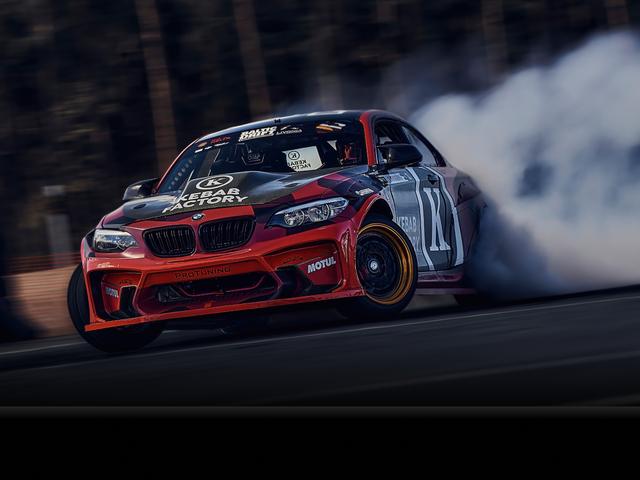

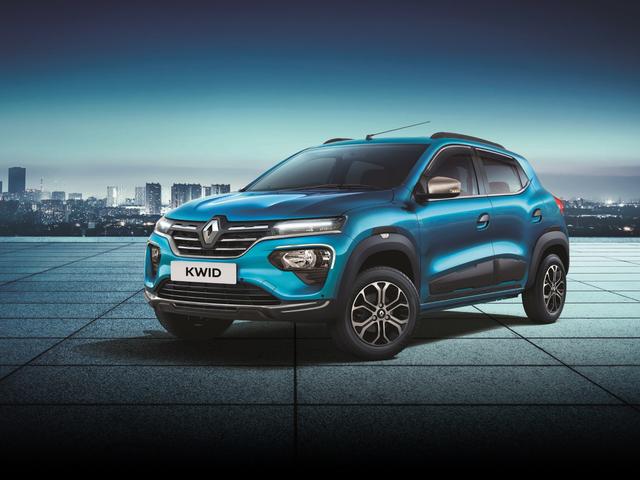

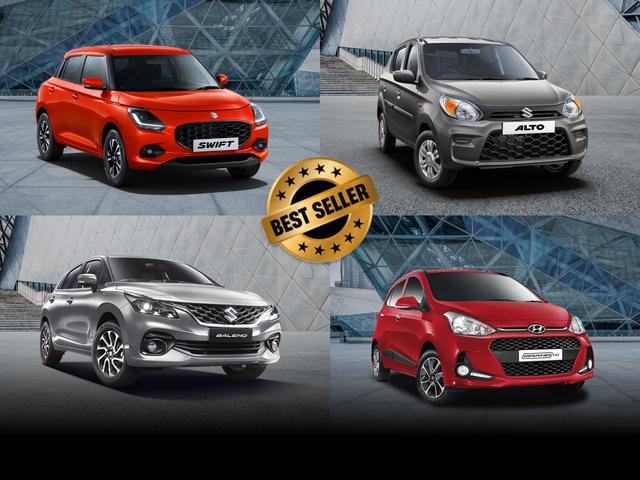

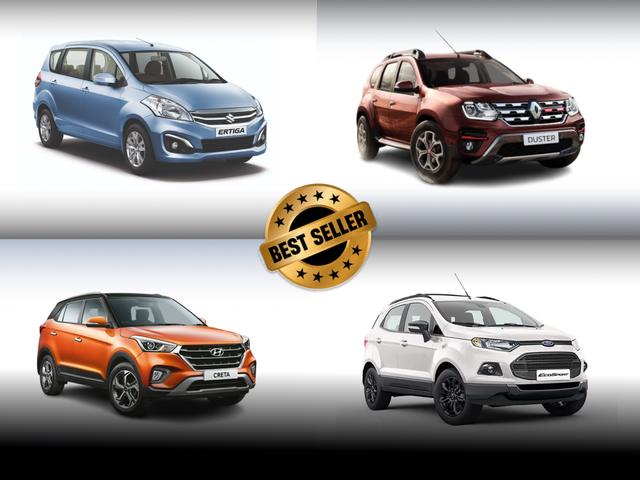

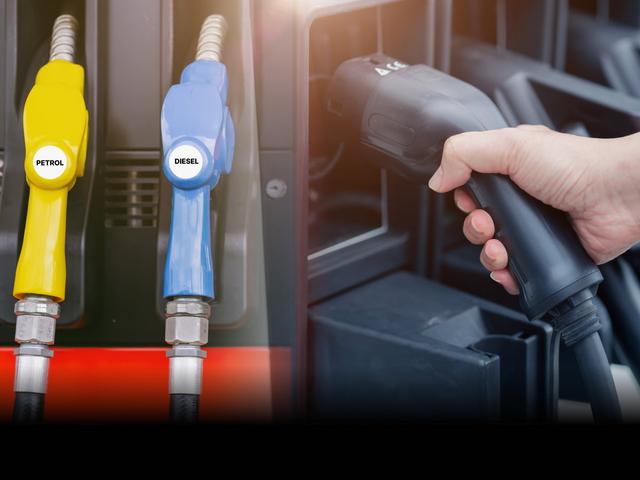

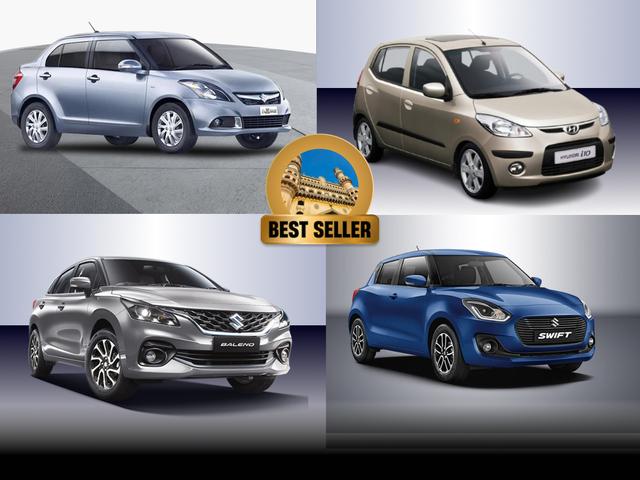

.jpg&w=640&q=75)

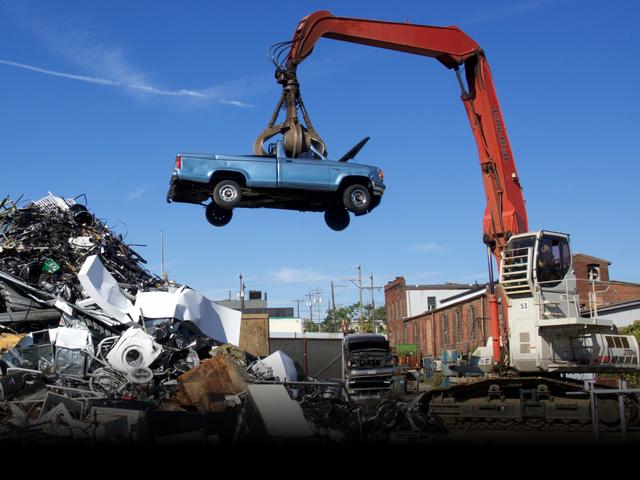

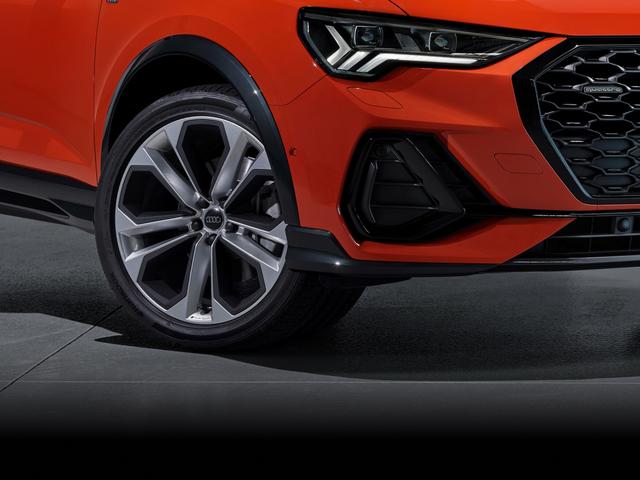

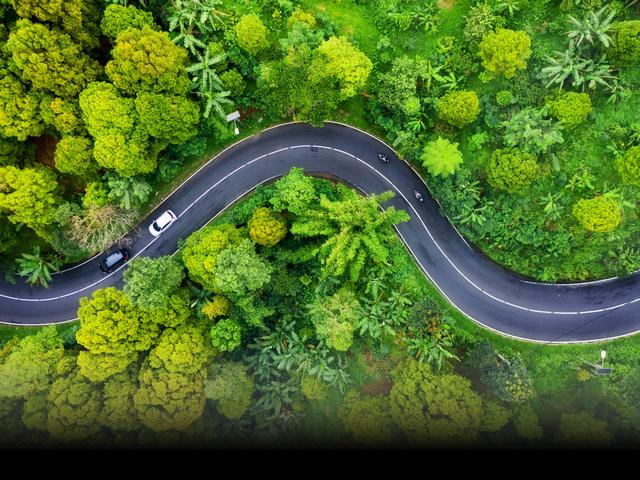



Blink blink !
Its almost here



-Explained-_-Decoding-Bharat-Stage-7_-What-It-Means-for-India-and-You.jpg&w=828&q=75)







